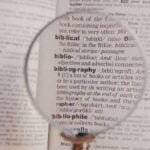Manuscript editing is a crucial process that involves meticulously reviewing and refining a written document to prepare it for publication or submission. This encompasses a wide range of tasks, including correcting grammatical errors, refining punctuation and spelling, restructuring sentences for better flow, ensuring consistency, enhancing clarity, and overall improving the manuscript’s readability. Depending on the specific needs of the document, manuscript editing can also include reorganizing content for coherence, elevating the language style to engage the reader, and verifying factual accuracy or compliance with particular formatting standards.
Types of Manuscript Editing
1. Copyediting – This foundational step involves meticulously correcting grammar, punctuation, spelling errors, and addressing basic style inconsistencies to ensure the text adheres to standard language conventions.
2. Line Editing – In this phase, the focus shifts to enhancing the quality of individual sentences. Editors work to improve sentence structure, tone, and clarity, ensuring each sentence conveys its intended meaning effectively.
3. Substantive (or Structural) Editing – At this level, editors delve deeper, reorganizing the manuscript’s content to enhance coherence, logical progression, and overall impact. This might involve significant restructuring to ensure that ideas flow smoothly and arguments are well-supported.
4. Proofreading – The final step in the editing process, proofreading involves a meticulous review designed to catch any lingering minor errors before the document goes to print or is published. This ensures the final product is polished and error-free.

Important Editing for Manuscripts
1. Enhances Clarity and Readability
Effective editing ensures that your ideas are articulated clearly and are comprehensible to your intended audience, making the work more engaging.
2. Improves Professionalism
A well-polished manuscript reflects a high level of care and attention to detail, which conveys professionalism that is vital for academic, literary, or business writing ventures.
3. Eliminates Errors
By catching and correcting typos, grammatical mistakes, and inconsistencies, editing helps establish and maintain credibility with readers.
4. Ensures Consistency
Consistent tone, formatting, terminology, and citation styles are crucial for maintaining unity throughout the document, making it easier for readers to follow.
5. Boosts Chances of Acceptance or Publication
Whether for students, researchers, or authors, a thoroughly edited manuscript significantly enhances the likelihood of acceptance by academic journals, publishing houses, or committee reviews, paving the way for professional success.
Recently, more people are starting to write, which is a very encouraging sign. In the past, there was concern about a loss of intellectual voices, but now, young people are excited about writing, which should help fill that gap.
Qualification of Manuscript editor
We expect that researchers and librarians will provide complex topics for authors to explore in their books. The authors should carefully think about their content while experienced editors refine the manuscripts. An editor should have more editing experience than the author does.
It’s a mistake to think that an author simply writes a draft and someone else edits it without any involvement. Authors need to look at their work closely, find and fix technical errors themselves, and make sure their manuscript is polished. The best editor is often someone who supports their own writing and actively engages in the editing process.
A manuscript editor must possess a diverse set of skills and expertise to ensure the quality and clarity of the written work. Here are some crucial competencies:
1. Advanced Language Proficiency: An editor should have an exceptional command of the language, including a deep understanding of grammar, syntax, and stylistic nuances. This skill allows them to refine the text while maintaining its intended voice and tone.
2. Thorough Spelling Knowledge: Mastery of spelling is fundamental. An editor needs to be attentive to detail, ensuring that all words are correctly spelled, which enhances the professionalism of the manuscript.
3. Familiarity with Dictionaries: A comprehensive knowledge of different types of dictionaries and their specific uses is vital. Editors should be adept at navigating these resources to clarify meanings, usage, and etymology, which aids in enhancing the manuscript’s precision and depth.
4. Subject-Specific Reference Materials: When working on a particular subject, it is highly recommended for an editor to have a relevant dictionary or specialized reference guide readily accessible. This ensures accurate terminology and contributes to the manuscript’s credibility.
5. Understanding Abbreviations: A proficient editor should be knowledgeable about various abbreviations relevant to the manuscript. They must know where to find not only the full forms of these abbreviations but also track their sources to maintain accuracy and consistency throughout the text.
A manuscript editor knows that writing a book is as difficult as editing it. Therefore, he must be well informed about the proper use of the aids used in writing a book. Therefore, he must know –
A. Bibliography and preparation method,
B. Index preparation method, and
C. Methods and techniques for using footnotes
The author believes that in writing a book, especially in the case of research-based and informative writing, only the issue of preparing a bibliography and index comes within the scope of duty. In the case of creative literature, this issue is completely irrelevant.
- One more thing that is worth mentioning is that the issue of footnotes also comes here. Because in all cases of writing a research-based or informative book, including all texts or books, the author has taken the help of a lot of books related to related subjects. Therefore, for reasonable reasons, the author has to mention the acknowledgement of the sources used at the end of the book. Those who are not aware of the customs and traditions of mentioning the acknowledgement of supporting books have to struggle a lot in every case.
- Secondly, if a book is research-based, informative, textual or even a travelogue, there may be information included in the book that is not mentioned in the index. How is it possible for the reader to find that information in a short time? How good it would be if there was a chronological list at the end of the book with actual page references to the place-time-potter-event-moment etc.
- Thirdly, the bibliographer sometimes has to face the situation that the subject of the book is mentioned and something additional needs to be said about it. Or the text of the book contains information that requires a reference to the source as proof.
By cultivating these skills, a manuscript editor becomes an essential asset in the writing and publishing process, elevating the final product to its highest potential.



